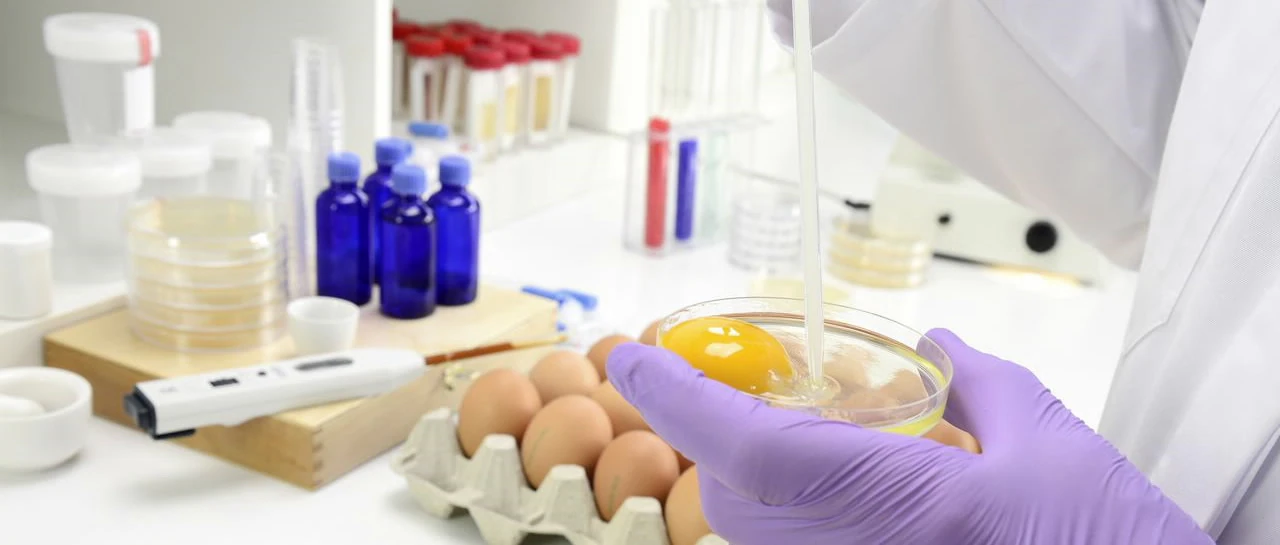EN 13732 Nitrate and Nitrite Detection in Cured Meats
The European Standard EN 13732 provides a method for determining nitrate and nitrite concentrations in cured meats. This standard is crucial for ensuring the safety and quality of processed meat products, as excessive levels of these compounds can lead to potential health risks or affect product shelf life.
The process involves several key steps that are integral to achieving accurate results. Specimens must be prepared carefully according to the standard's specifications, which typically include grinding, homogenization, and dilution if necessary. Once prepared, they undergo analysis using spectrophotometric techniques designed to detect nitrate (NO3-) and nitrite (NO2-) ions.
The importance of this testing cannot be overstated, especially in the context of food safety regulations. By adhering strictly to EN 13732, laboratories ensure compliance with EU directives aimed at protecting consumers from harmful substances present in processed meats. This standard also plays a vital role in maintaining consistent quality across different batches and brands by providing uniform measurement methods.
Understanding the chemical reactions involved helps in appreciating why precision is paramount during analysis. Nitrate converts to nitrite under specific conditions, primarily due to bacterial action or enzymatic processes within the meat matrix. Therefore, monitoring both compounds simultaneously provides valuable insights into the manufacturing process and final product safety.
The results obtained from this test serve multiple purposes beyond mere compliance. Quality managers can use them to identify trends in nitrate/nitrite levels over time, helping to refine production techniques or adjust ingredient formulations as needed. Compliance officers rely on accurate data when faced with regulatory audits, ensuring their operations meet all necessary requirements without compromising product integrity.
In addition to regulatory adherence, understanding the broader implications of nitrate and nitrite content in cured meats is essential. These compounds play significant roles in preserving meat products by inhibiting bacterial growth but may pose risks if consumed excessively over prolonged periods. Thus, accurate detection allows for better management practices that balance preservation efficacy with consumer health considerations.
Adherence to EN 13732 ensures reliable and repeatable measurements across various laboratories, fostering trust among stakeholders. With proper validation and standardization efforts, this method contributes significantly towards safeguarding public health while supporting the food industry's growth and sustainability goals.
Frequently Asked Questions
Eurolab Advantages
At Eurolab, we pride ourselves on offering comprehensive services that cater specifically to the needs of the food industry. Our expertise lies not just in performing tests according to international standards like EN 13732 but also in providing valuable insights and recommendations based on our findings.
- Accurate Results: Leveraging advanced analytical techniques, we ensure precise measurements that are essential for reliable compliance checks.
- Comprehensive Support: From initial consultation to final reporting, our team is dedicated to guiding clients through every stage of the testing process.
- Up-to-date Knowledge: Our professionals stay abreast of all relevant standards and guidelines, ensuring that our services remain current and effective.
- Custom Solutions: Recognizing each client's unique requirements, we offer tailored solutions that address specific challenges faced by the food sector.
We understand that meeting stringent quality and safety standards is critical for maintaining a competitive edge in today’s market. By partnering with Eurolab, organizations can benefit from our unwavering commitment to excellence and innovation.
Why Choose This Test
- Compliance Assurance: Ensures adherence to EU regulations regarding nitrate and nitrite levels in processed meats.
- Risk Management: Identifies potential risks early, allowing for proactive adjustments in manufacturing processes.
- Quality Control: Provides consistent standards across batches, ensuring uniform product quality.
- Consumer Trust: By demonstrating commitment to safety and quality, businesses build stronger relationships with consumers.
The ability to accurately detect nitrate and nitrite concentrations not only enhances compliance efforts but also supports broader strategic objectives within the food industry. Whether it's for regulatory purposes or internal quality assurance programs, this test offers numerous benefits that contribute to overall business success.
Use Cases and Application Examples
- Batch Verification: After each production run, samples are taken to verify compliance with established limits.
- Ingredient Testing: Ingredients used in the formulation of cured meats undergo independent testing to ensure they meet specified nitrate/nitrite content requirements.
- R&D Support: During product development phases, this test aids in optimizing formulations for both preservation efficacy and consumer safety.
In summary, EN 13732 plays a pivotal role in safeguarding public health while supporting the continuous improvement of processed meat products. Its application extends beyond mere compliance to encompass broader strategic goals within the food sector.





